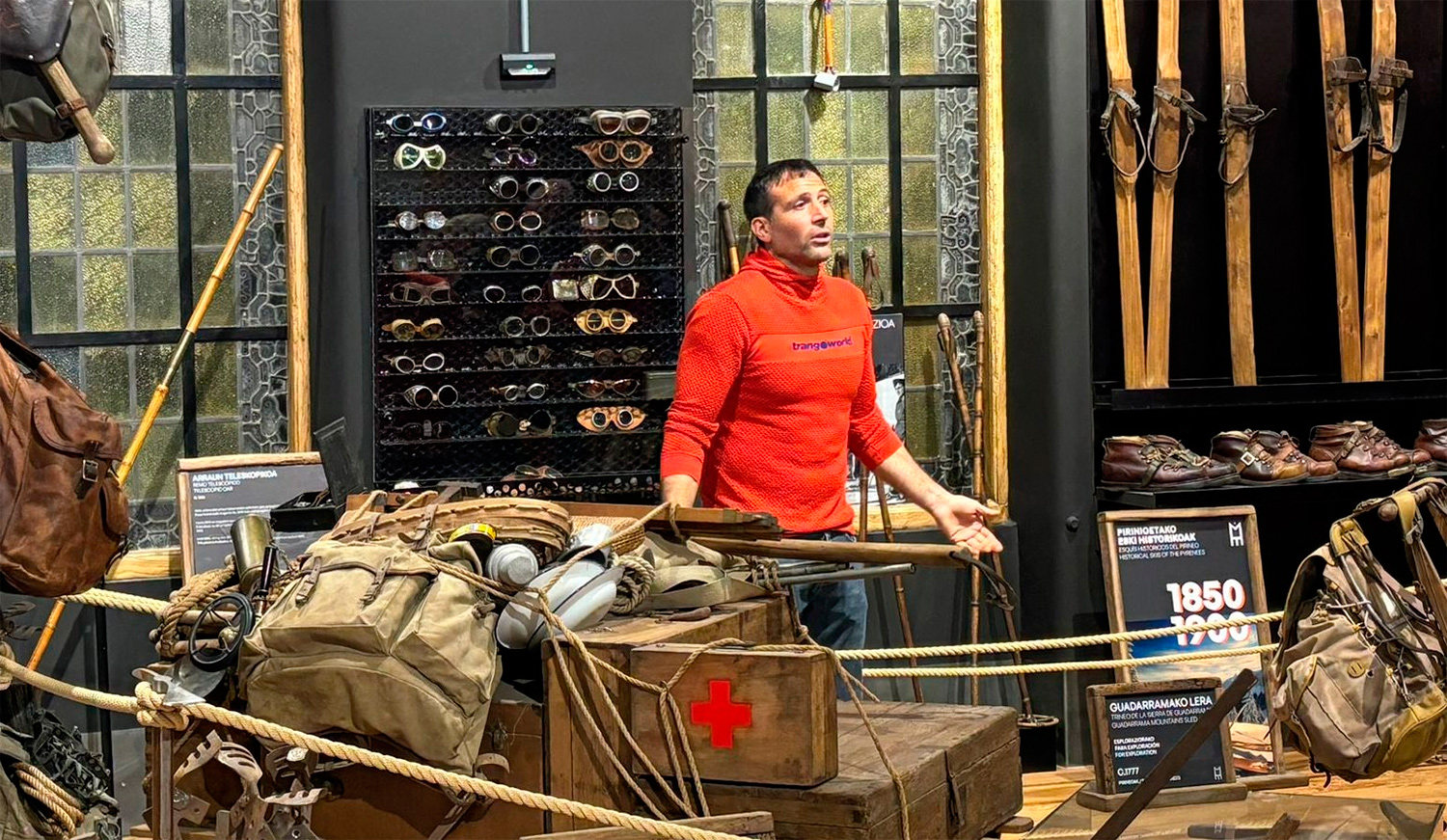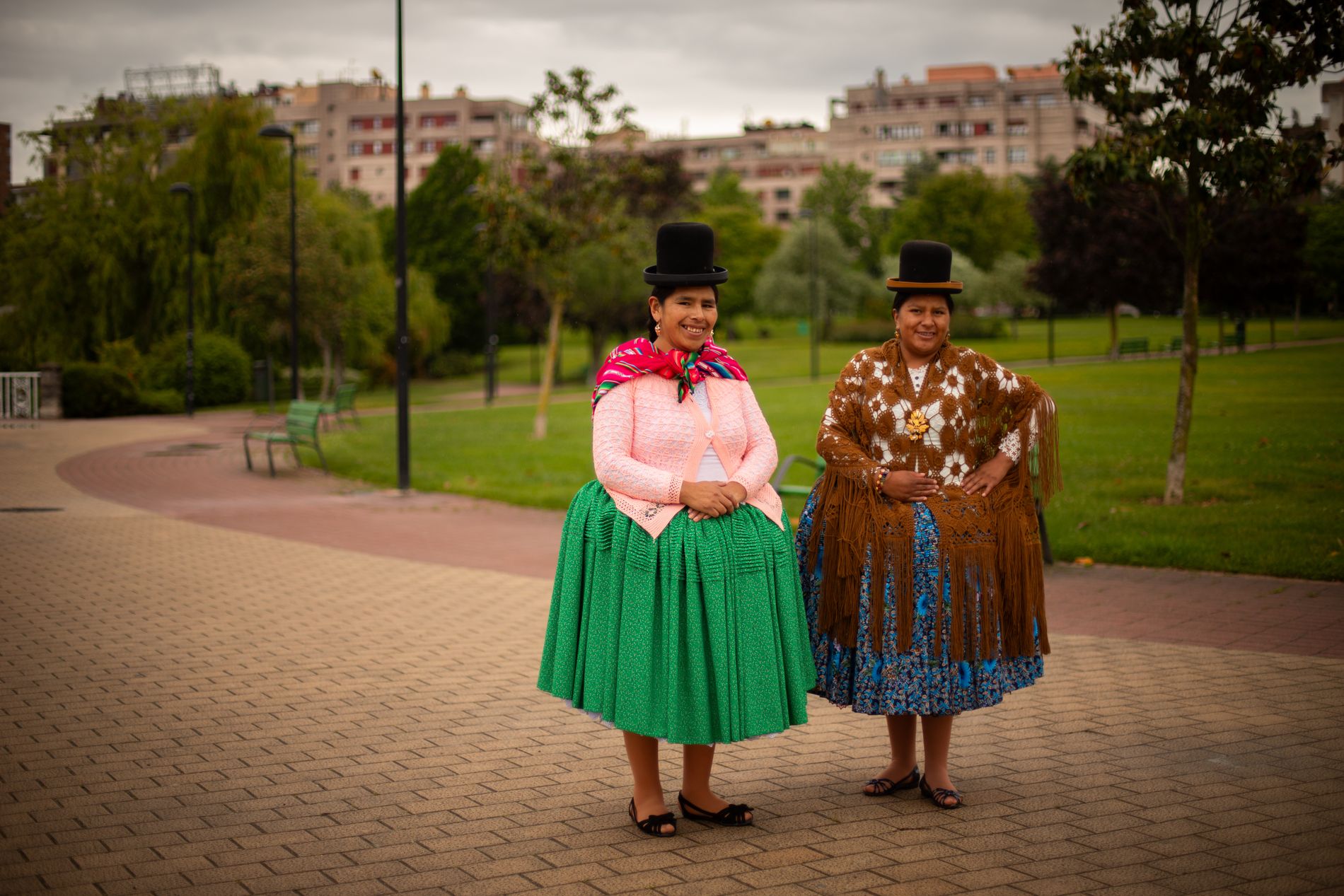"It does not seem fair to me to say that running on the mountain has encouraged competition"
- Some of the interviewees in May's Larrun magazine told us that the biggest changes in mountaineering have come with technology and corridors. We gather the testimonies of the mountaineers Iker Lasterketa (Amezketa, 1974) and Jone Urkizu (Azkoitia, 1979), among others, on the development of this sport and the philosophy of the mountain.
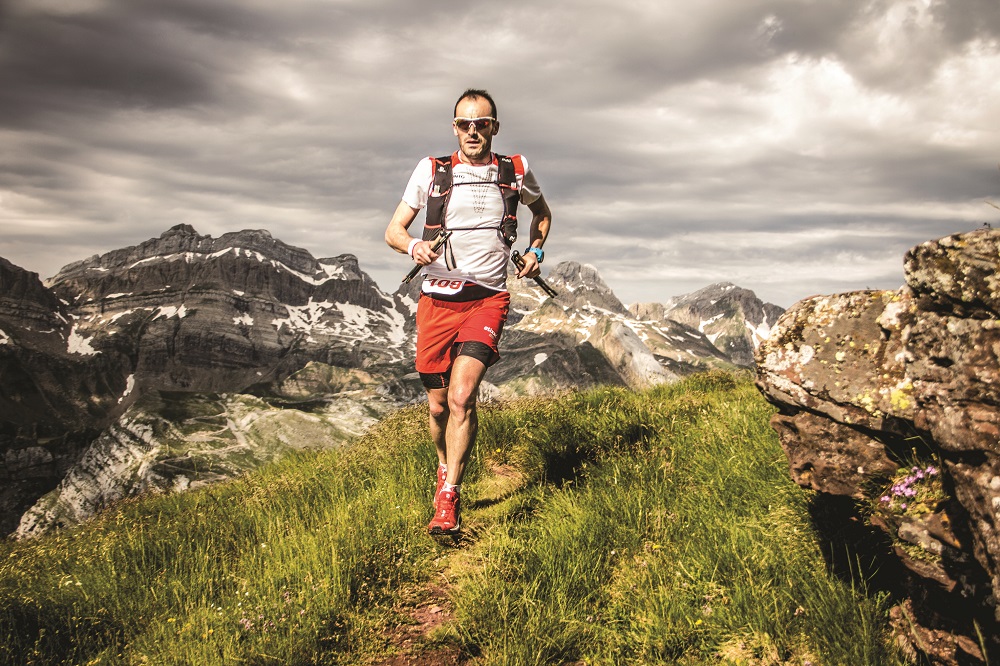
“I was born in a hamlet of Amezketa, surrounded by mountains,” Karrera tells us. “We would take the cows to the grasslands on top; I would run to see if the animals were okay, and on the bottom the same. It has been natural for me to run down the mountain.” Iker Race. Dialogue book North Bidea (Unai Ugartemendia. We have met with the excuse of Deslevel, 2020. We have addressed the issue directly and, since the first answer, we have been led by an athlete who has abandoned the leading competition.
Are the values associated with the mountain being lost? Some say corridors have brought competition...
The mountain has no values, it's a space. Values we have people. The values we bring to the mountain, to the mountaineering, to the idealized romantic image -- it's a huge lie. On the mountain there has been rivalry since people walk there, at all times. The conquests of the Himalayas were state issues, banderizing, somehow being war camps. In the Alps, they would climb walls or hide to open new roads, who would enter the first one starting in the chassis... I do not think it is fair to say that running on the mountain has encouraged competition. Since man is human, he has led to all the places he has come to compete. If the mountain has something, it's natural values. The rest of us recognize it. According to the culture of the time, the needs, the resources, etc., some values will become stronger, they will be fashionable. And it's done.
And what do you think are the factors that have made running the mountain become a “fashion”?
On the one hand, I would say that the hobby for sport in Euskal Herria is linked in part to a good quality of life: we have more free time, more health care... On the other hand, because we have the mountain at hand, we have the city on top, and maybe it's a way to escape it. Running in asphalt is heavy, on the edge of the road or in a polygon. The mountain is more enjoyable, it gives you more positive stimuli. And I think we have a culture in which it's well-valued to do sport. If it was underappreciated or culturally misplaced, it probably wouldn't attract as many people.
Are you a mountaineer, a mountaineer or more an athlete?
What is being a mountain runner? A person might like to run down the mountain. Another thing is that that person competes in mountain races and another becomes a profession. Is it a mountain corridor because someone runs through the mountain? I don't think so. I want to think that for your health you're not going to like doing it alone. If you don't, you have a disease, just think about running 24 hours a day... Becoming a profession is not easy. That is where very few athletes live. I had a contract with Solomon and offered him the same time and effort as a professional, but I was not a professional. Being a professional is creating an economy with what you do, monetizing that activity. And there, a lot of nonsense. A romantic touch, “I do this because I like it” -- No, you have to create an economy, as in any other trade.
Have you felt the pressure to create an economy?
No, because I keep the job [Tolomendi is manager of the rural development association]. I've spent almost all my spare time in mountain racing sacrificing other things, but my goal has never been to monetize that activity. If someone is thinking about being a professional, they will have to spend the time on the computer, because running is not enough to create an economy. You have to work on social media, create an image or a brand, attract sponsors...
It tends to say that social media and mountain racing are maturing.
This sport has a unique context and in some moments it can have a story, an epic touch. Thus, it has managed to attract brands that take advantage of the internet to promote careers and sell their products. Social networks are a good tool for a minority sport such as this, as mass media do not reach or reach the mass media. And there we brokers play a role, because we need to promote the sponsor's product. It's understandable, but because for me it wasn't a trade, I didn't have to sell anything, but I ran because I like it, you can create an imbalance, because brands have to sell. The need to create content, tell something, upload photos... to have a presence every day made me uncomfortable.
Given the importance of creating an economy, where can mountain races walk?
Material or training development is foreseeable. People will tend to specialize in specific distances to get the best possible result. There will be more and more corridors, the level will rise further. But the economic dimension for more people should be bigger. If the present pie offers ten diners, ten compete for it. And if I gave it to eat 50 people, there would be 50. As long as the cake doesn't grow... In this sense, should we aspire to all becoming professionals? I have doubts. More funding would be needed, and I see it as difficult at the moment.
Is it not going to increase the pie?
I have doubts. In our case, for example, many careers are organized, colonies and colonies intervene, public money is included, but if companies are not put in at once, if this activity does not generate money, public money will go somewhere else. And businesses will come in if it's possible to create an economy.
In 2011, the Mayor of Chamonix made very clarifying statements on the eve of the UTMB, which put us in place the great world race and the corridors. He said that the role of the UTMB is to create a tourist product to benefit economically from the sites located in the Mont Blanc area between 1,000 and 3,000 meters. Currently, almost 10,000 brokers meet in the UTMB, becoming a banner or commercial sign to promote the tourist product. The Zegama-Aizkorri Marathon has also placed the village, Goierri, on the map. The objective is the same: How can we create an economy with the resources that we have?
Do races have a clear reason for being?
I would say no. Many times races have been organized that have been said by a person or a group because it has been at a given time: “Here’s a journey, why not do something?”, with no more ambitious goals. Some have evolved, they have found their space and they have made room in the calendar. They're equally in the 2nd or 3rd category, but in that league they've made their space. Problems arise when a 3rd category race wants to play in the Champions League. Itineraries must have a logic, perhaps a history, an aesthetic.
Jone Urkizu
"Here, if you don't feel very fit, people don't race out, it's different in France."
Jone Urkizu debuted in 2006 at the Zegama-Aizkorri Marathon. Fifteen years, therefore, started in mountain racing. Apuko Extrem, Els Bastions, Costa Blanca... the Azkoitia has won pretty wins, as well as climbing the podium, Montsec (in the photo), Ehunmilak or Hiru Handi. His words are:

“I’ve walked a lot through the mountain. Three Great Ones, at first walking, but as I took shape, I made some career sections. And from there to the first race. Zegama-Aizkorri, 2006. I suffered a lot, and I realized that if I wanted to run on the mountain, I had to train on that. The ways of training have changed considerably in recent years. The mountain, the mountain and the mountain, before there was nothing else.
The level of corridors has greatly improved in recent years. In the past, there were people who had walked a lot through the mountain. However, he did not have enough training to run. Those who have lived in the mountain – heat, cold, thirst... – can help you to better manage some situations, but it is essential to run properly. Being a new sport has the advantage that anyone can participate in the races, even though the elite runner will take you six hours to finish, although in Euskal Herria people do not leave for careers if they do not feel very temporary. In France it is different, one ends in four hours and the other in eight. To some extent, they're more popular.
Structural or resource refinement. The salsa is big: the mountain federations, the athletics federations, the sponsors also organize championships (for example, ‘Salomon Golden Trail Series’)... Because it is not a professional sport, with the consequences that this entails. Do I feel like an athlete? No.
My team is Kulum Sport. Well, it's more of a group of friends. Maybe the sponsor does some downgrade us when we want to buy clothing from their brand, but a little further.
I am not very clear that there are a lot of young people running down the mountain, at least not much more than a few years ago. It is true that it has attractive elements, a beautiful environment and a competition point, and there is also a social media issue. When you sell running on the mountain, I don't know what it would be, and getting some challenges would be a great success, attracts people. I don't spend much on social media. I have never felt the need, the sponsor would probably be a different banu because they want to sell their products.”
No women's group
“You see few groups of girls training. We usually meet in the kids' teams if we want to run through the week. I miss it, because if there were groups of girls it would be easier to attract women.
We would feel more comfortable.
Career visibility is low. Normally boys and girls leave all at once and between 500 people it's hard to see us. Plus, there's a distance between the boy who comes the first and the first girl, maybe three hours in long runs, and it looks like the guys are some machines and we ... Sometimes I think it's OK to go out all at once, but other times it hurts me. I remember a few years ago organizing a female career in the vicinity of Bera. Although a lot of people participated, it didn't happen again. They say that women don't do sports, but you organize things like that, or Lilatoia, and it names a lot of girls. It makes me angry to say that we women don't compete. Excuse me, I'm doing sports. When I first made Zegama-Aizkorri, the British Angela Mudge won, with less than five hours of branding. Well, there were people who said he looked like a man and like him. To do Christ and also to disqualify... These beginnings were not easy.
In Euskal Herria, we have great references. Maite Maiora is the current Zegama-Aizkorri record [04:34:27]. What he has done has not been achieved by anyone, not a boy. He's got a patterson that's similar to a professional. Oihana Azkorbebeitia, Uxue Fraile, Neramilibia, Rosa Lasagabaster... They're known names, yes. But that can have two readings: that they've come out very good mountaineers or that there's no relay. In the last 15 years we have been similar.”
-----------------------------------------
Centares, Zegama-Azikorri...
“It always seemed to me that Ehunmilak wanted to follow the trail ultra-trail of Mon Blanc, which is the same distance. This is very difficult in Euskal Herria,” says Karrerak in a passage of the book Bidea. “I would say that it is a problem of many careers, of wanting to look for a brand or a specific measure and, in this case, of the textile brand she commands. The journey does not have much logic or, in other words, I think it does not have the identity of many other races. Its only justification for being is to fulfill the distance one hundred thousand”.
On the contrary, we asked Jone Urkizu what his favorite career is, and Ehunmila tells us first: “It is observed that it is organized with a lot of mime. They monitor the corridors. It's not created by a company and you notice it. I don't mean they're bad. But the big races, the ones that concentrate a lot of runners, seem to me in part impersonal. Mont Blanc's, for example, seems to be Mecca, and it's something you have to do once in your life, yes, but I think you can't compare it to Ehunmilak. Zegama-Aizkorri has also changed a lot, today it is very media. It's a great race, it competes with runners from all over the world, it congregates a lot of spectators... But I don’t get so drawn anymore.”
Kirola eta oroimena uztartuko dituzte, bigarrenez, mendi-martxa baten bitartez. Ez da lehiakorra izanen, helburua beste bat delako. La Fuga izeneko mendi martxak 1938ko sarraskia gogorarazi nahi du. Ezkabako gotorlekuan hasi eta Urepelen amaituko da. Maiatzaren 17an eginen dute.
Herriko EH Bilduko zinegotzi eta legebiltzarkide den Ander Goikoetxeak egindako galdera parlamentario bati Jaurlaritzak emandako erantzunaren bidez jaso informazioa hau. Bi haize sorgailu ezartzeko asmoa dago eta Cluster Hernani izeneko proiektu zabalago baten barruan kokatzen... [+]
Mendizale batek asteburuan ikusi du animalia Lapurdiko Azkaine herrian, eta otsoa dela baieztatu du Pirinio Atlantikoetako Prefeturak. ELB lurraldean "harraparien presentziaren kontra" agertu da.
On Sunday of September it is customary to climb to Ernio, dance in Zelatun and eat brown chorizo, or something. The worst time you don't need people. This year, when my friends were leaving earlier and I was delaying, I would go up alone, finding the crews coming down. Most young... [+]







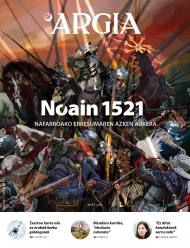

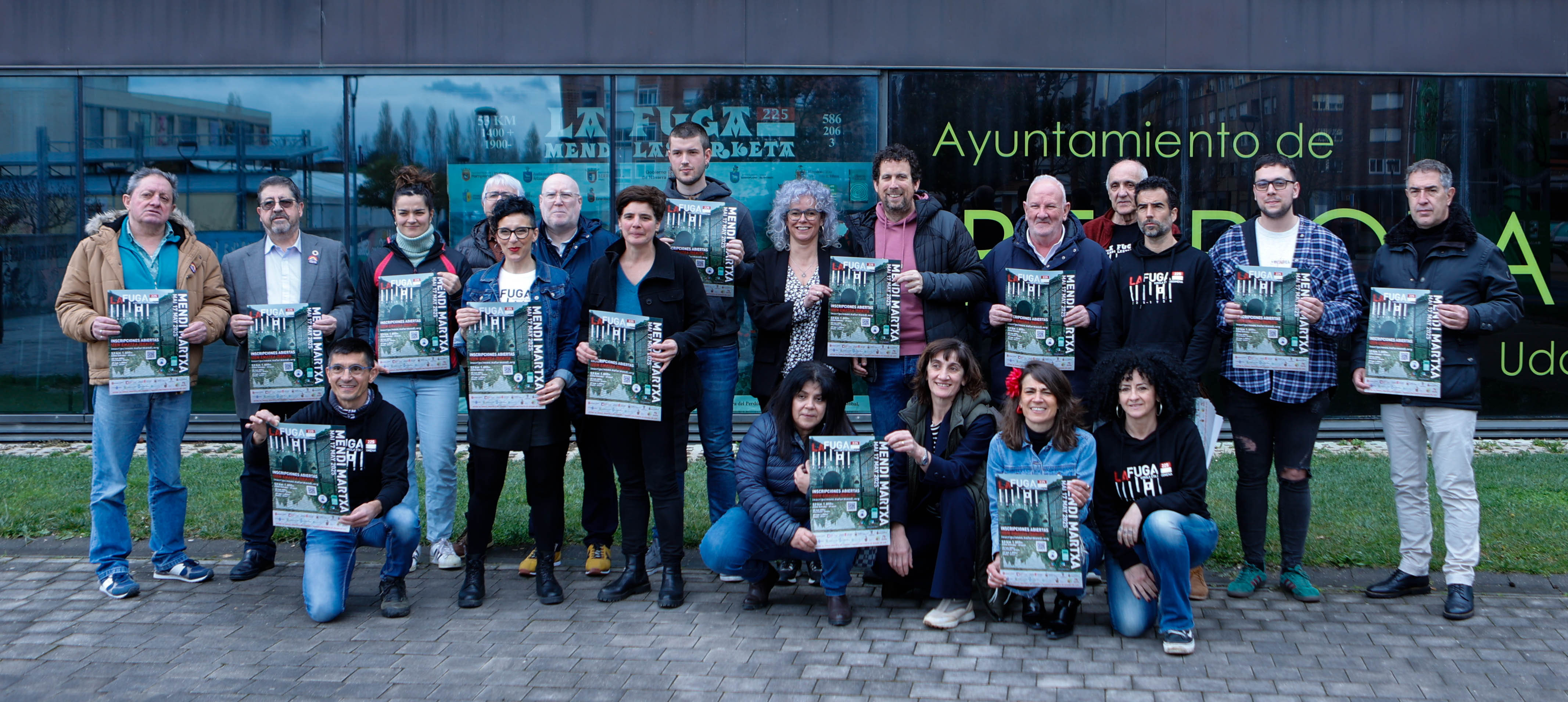


_Glaciar.png)


